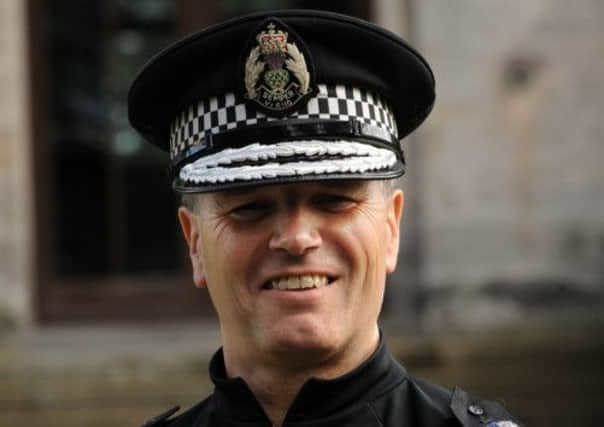Concerns at rise of “Strathclyde-style” policing


The Scottish Police Authority (SPA) has asked Chief Constable Sir Stephen House to investigate why the number of cases have increased so much in the last three months.
It comes amid growing fears among politicians that the new force, Police Scotland, is being too heavily influenced by “Strathclyde-style” policing.
Advertisement
Hide AdAdvertisement
Hide AdNew figures obtained by The Scotsman show officers in the Edinburgh Division carried out stop and search on 8,259 occasions between April and June - up from 4,706 in the same period last year.
In the Borders Division searches for drugs and weapons rose from 642 people for weapons and drugs, up from 376 the year before.
Statistics also reveal a substantial rise in the number of successful searches - when the suspect had been found to be in possession of drugs or a weapon.
However, critics said that overuse of such measures could harm relations between police and communities.
Broad members at the SPA, which is tasked with holding the force to account, said they needed to be satisfied that “fair and proportionate” use of stop of search is being used.
Margo MacDonald, the Independent Lothians MSP, said she feared the rise signalled an overwillingness to use “Glasgow-style” policing across Scotland.
Strathclyde Police, whose chief constable Stephen House became head of the new single force in April, pioneered the use of tough street policing aimed at tackling knife crime and Glasgow’s notorious gangs.
Between 2008, when House took charge and 2011 there was a 75 per cent drop in teenage knife-carrying.
Advertisement
Hide AdAdvertisement
Hide AdHowever, Strathclyde came under fire from human rights groups after it emerged that officers carried out more searches than by the Metropolitan Police in London in 2011, which has more than four times the population.
Ms MacDonald has recently highlighted the raids on Edinburgh’s licenced sex-for-sale saunas - which were tolerated under Lothian and Borders Police since the 1980s - as evidence of “one-size fits all policing”.
“This is at best misplaced enthusiasm which could damage trust between the police and communities”, she said.
“I’m very concerned this is the same attitude as we have seen towards Edinburgh’s saunas - Glasgow-style policing which is being employed across Scotland.
She added: “Trust between the community and police in Scotland is very high, and deservedly so. It has been earned by the police. I worry that this trust will be eroded by such aggressive tactics.”
Robert Wilson, an SPA board member who leads on Edinburgh issues, said the doubling of stop and searches in the capital and the Borders was raised at recent discussions and told how Sir Stephen had been asked to report back on the measures.
He said: “Given the significant amount of police resource going into stop and search and the potential impact it can have on our communities, both positive and negative, the SPA would wish to satisfy itself that it is effective in making Scotland a safer place and that it is also fair and proportionate.”
He added: “It is positive to see that the number of successful interventions has increased but we would be keen as a board to engage with local authorities to take their views on the impact of this increase in stop and search in their constituencies.”
Advertisement
Hide AdAdvertisement
Hide AdRichard Haley, human rights campaigner and chair of Scotland Against Criminalising Communities, said that the increasing use of such powers was a concern.
“Strathclyde has in the past used such powers excessively under the guise of dealing with gang crime”, he said.
“While gang crime is clearly a problem some of the tactics seemed like officially licenced harassment. I would urge a great deal of caution as excessive use undermines relations with the police.”
However senior officers of the new force insist the increase is down to better identification of suspects and highlighted falling crime rates.
Chief Superintendent Mark Williams, Divisional Commander for the City of Edinburgh, defended the use of stop and search, and said that “the increase in the use of stop and search powers comes as a result of our efforts to identify offenders, in order to enhance the safety of residents across Edinburgh”.
He added: “Our targeted approach has seen officers deployed in the right places, at the right times and resulted in increased weapons seizures, which has contributed to an overall reduction in violent crime across the City.”
The use of stop and search tactics have attracted significant controversy in recent years.
Last month The Inspectorate of Constabulary for England and Wales found that in 27 per cent of cases were illegal, and warned this could lead to a lack of public support for the police.
Only 9 per cent of searches lead to an arrest, it found, although the average is higher in Scotland at about 15 per cent.